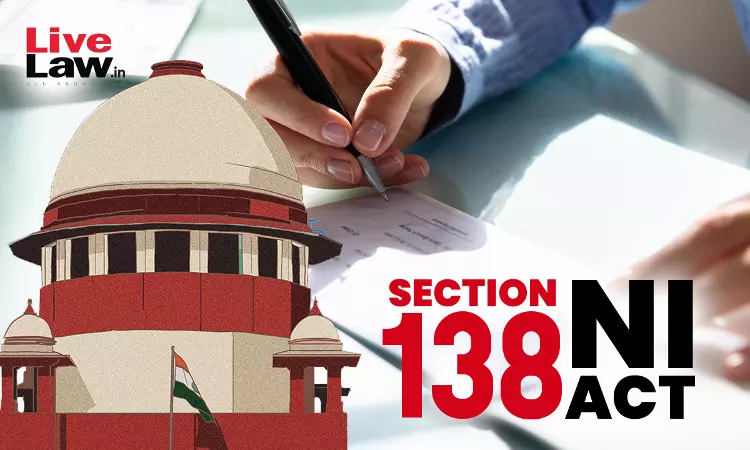- Home
- /
- Top Stories
- /
- S. 138 NI Act | Supreme Court...
S. 138 NI Act | Supreme Court Doubts Kerala HC View That Cheque Dishonour Case Can Be Filed Over Debt For Illegal Consideration
Yash Mittal
23 Aug 2025 10:30 AM IST
The Supreme Court prima facie observed held that cheque dishonour proceedings under Section 138 of the Negotiable Instruments Act, 1881, cannot be initiated for liabilities stemming from an illegal or unenforceable debt. A bench of Justices Aravind Kumar and Joymalya Bagchi heard an appeal arising from a Madras High Court (Madurai Bench) order that had acquitted the respondent-accused in...
The Supreme Court prima facie observed held that cheque dishonour proceedings under Section 138 of the Negotiable Instruments Act, 1881, cannot be initiated for liabilities stemming from an illegal or unenforceable debt.
A bench of Justices Aravind Kumar and Joymalya Bagchi heard an appeal arising from a Madras High Court (Madurai Bench) order that had acquitted the respondent-accused in a cheque dishonour case, holding that the cheque was issued towards repayment of an illegal debt.
Challenging this decision, the petitioner-complainant approached the Supreme Court, relying on the Kerala High Court ruling in C.V. Rajan v. Illikkal Ramesan (2015), to argue that even if the debt arose from an illegal promise or purpose, it would still fall within the ambit of Section 138 of the Negotiable Instruments Act, 1881.
In C.V. Rajan's case, the complainant alleged that the accused had taken ₹2.30 lakh, promising to secure him a clerk's job in a school. When the promise went unfulfilled, the accused issued a cheque towards repayment. The cheque was dishonoured due to insufficient funds, and the accused was convicted by the trial court.
The Kerala High Court upheld the conviction of an accused, rejecting the accused's argument that the cheque was not issued towards a “legally enforceable debt” since the money had been obtained for an illegal purpose, namely, procuring a job.
The High Court held that repayment of money, even if obtained by a false or illegal promise, is not prohibited by law, and once a cheque is issued for such repayment, dishonour attracts liability under Section 138 of the NI Act.
Upon hearing Petitioner's counsel, the Supreme Court was not inclined to issue notice while making a prima facie observation that the said debt cannot qualify as “legally enforceable debt” to bring an action under Section 138 NI Act. However, the Court issued notice for the limited purpose of ascertaining the correctness of the Kerala High Court's decision on CV Rajan.
“Prima facie, we are of the view that the said principle would be inapplicable in the background of the expression used in Section-138 of the NI Act and the same would not be considered as a “legally enforceable debt”, the view taken by the Kerala High Court may not be in consonance with the statutory provisions. Hence, for this limited purpose, we order for issuance of notice to the respondent, returnable in six weeks.”, the court said.
Cause Title: K.K.D. PANDIAN VERSUS S. TAMILSELVI
Click here to read/download the order
Mr. Balaji Subramanian, Adv. Mr. A. Lakshminarayanan, AOR Mrs. Sathya Priya S, Adv. Appeared for the petitioner



